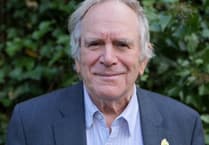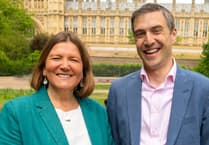Ross Town Council grappled with financial decisions during their meeting on Monday, (February 13), as they discussed the pros and cons of raising the town council precept versus dipping into general reserve funds.
Councillor Daniel Lister worried that the next council, set to be elected in May, might struggle with limited reserve funds, while a higher council tax precept—whilst only making a small different to the individual tax-payer—could help bolster their coffers for future expenses.
Councillor Jane Roberts added that the current council inherited high reserves when they were elected four years ago, thanks to unusually high precepts. However, the council decided to cap general reserves two years ago in line with best practice guidelines. Although the inherited reserves were high, they did not exceed the recommended three to 12 months of revenue and expenditure.
To cover operating costs for three months, Councillor Julian Utting said that the council would need to reserve £154,000. While they have a deficit budget this year, having another deficit budget next year would be unwise, he added. With these concerns in mind, the council discussed the best ways to balance their budget and ensure their financial stability for financial year.
Following a lively debate on 2023/2024 town council budget, councillors voted not to raise their precept by five per cent as was recommended by the management committee.
Instead they unanimously voted to raise it only by three per cent, with local councillors citing a number of reasons for their decision.
The amendment to lower the full-raise was put forward by Mayor Ed O’Driscoll. He proposed setting the precept at £553,045 which would be a 3 per cent increase on band D properties, the value of £137.88 rather than £140.55.
The motion added that any end-of-year deficits are to come out of general reserves.
Cllr O’Driscoll said that whilst this years spending left a deficit, the council usually underspend when it comes to the budget.
He added: I think it’s important that we do recognise that there is a cost-of-living crisis and what we might only be talking about a few pounds, the fact that we’ll be setting a precept that’s 3 per cent rather than 5 per cent I think will be appreciated.”
Bringing things into focus for average household Cllr John Winder said: “£6.69 a year—which is what we’re talking here, with a five per cent increase—sounds a great deal less than five per cent. We’re looking at the different between £4.02 here and £6.69 a year.”





Comments
This article has no comments yet. Be the first to leave a comment.